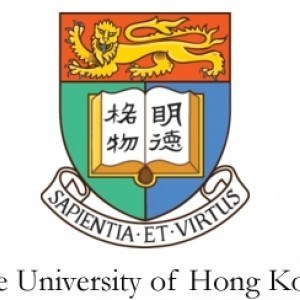Photos of university / #hkuniversity
Economics at The University of Hong Kong offers a comprehensive and rigorous program designed to equip students with a deep understanding of economic principles, analytical skills, and practical knowledge applicable to real-world challenges. The curriculum combines theoretical foundations with empirical research and policy analysis, preparing graduates for diverse careers in finance, government, international organizations, and private enterprises. Students will explore microeconomics, macroeconomics, econometrics, development economics, international trade, and financial economics through a variety of lectures, seminars, and case studies. The program emphasizes critical thinking, quantitative analysis, and effective communication, enabling students to interpret complex economic data and develop innovative solutions to economic problems. With a focus on regional and global perspectives, the program also provides insights into the economic dynamics of Asia and the world, supported by HKU’s strategic location and partnerships. Students benefit from access to excellent faculty members who are leading researchers in their fields, cutting-edge research facilities, and numerous internship and exchange opportunities. The program prepares graduates for further academic study or professional roles in policy analysis, economic consulting, banking, and international trade. Throughout their studies, students are encouraged to engage critically with economic issues, participate in research projects, and develop a nuanced understanding of the social and ethical implications of economic decisions. The Hong Kong-centric perspective of the program offers unique insights into Asian economies, ensuring graduates are well-positioned to contribute to economic development locally and globally. Upon completion, students will be equipped with the analytical tools, theoretical knowledge, and practical skills necessary to understand, interpret, and influence economic policies and business strategies in an increasingly interconnected world.
Students are required to successfully complete a total of ten courses, including the completion of three core courses (on microeconomics, macroeconomics and econometrics) and a capstone course. Students can choose to concentrate in one of the streams: Data Analysis Stream, Policy Stream or Theory Stream, according to their interests and career aspirations. They may elect to submit a dissertation in lieu of two elective courses. Assessment for each course may include assignments, mid-term examinations, project papers, other course work, as well as a final examination, which is normally held at the end of each course, unless otherwise specified.
Structure
Fundamental Core Courses (choose one course from each)
- Microeconomics
- Macroeconomics
- Econometrics
- Capstone experience
Stream Core Cources (choose one stream)
- Data Analyses Stream (Basic stream core and two courses from Advanced stream core)
- Policy Stream (Choose three)
- Theory Stream (Choose three)
Elective Courses
Candidates can choose electives from a list of courses to make a total number of courses taken ten.
To be eligible, you should:
- Hold a good Bachelor's degree from this university; or another qualification of equivalent standard to this University or from another University or comparable institution accepted for this purpose; and
- Obtain a TOEFL/IETLS score if you are not from an English teaching university.
An applicant who wishes to be admitted on the basis of a qualification from an university or comparable institution outside Hong Kong where the language of teaching or examination is not English is required to obtain a score of 577 or above (paper-based test), 233 or above (computer-based test) or 90 or above (internet-based test) in the TOEFL. Test scores that are more than 2 years old will not be accepted.
There is a non-refundable application fee of HK$300 for each taught postgraduate programme.
A minimum overall band of 7 with no subtest lower than 6.5 in the International English Language Testing System (IELTS) is also accepted as an equivalent standard.
The Master of Economics Scholarships shall be awarded to new students in the programme on the basis of prior academic performance at the time of admission. The number of scholarships to be awarded shall not exceed 10% of the intake number in the relevant academic year. The cash value of each of the scholarships ranges from 10% to 50% of the Master of Economics tuition fee, subject to the academic performance of each awardee.
All applicants of the programme will automatically be considered.
The Bachelor of Economics programme at The University of Hong Kong is a comprehensive undergraduate degree designed to provide students with a solid foundation in economic theory, quantitative methods, and practical applications relevant to today’s global economic environment. The curriculum is structured to develop analytical skills, critical thinking, and a deep understanding of economic principles that can be applied across various sectors, including finance, government, international trade, and consultancy. Students undertaking this degree are introduced to microeconomics, macroeconomics, econometrics, and various specialized fields such as development economics, environmental economics, and financial economics.
The program emphasizes a blend of theoretical knowledge and empirical research, equipping graduates with the ability to analyze economic issues quantitatively and qualitatively. It integrates coursework involving mathematical modeling, statistical analysis, and computer-based simulations to prepare students for real-world economic challenges. The programme also encourages experiential learning through internships, research projects, and seminars where students can interact with academic experts, industry professionals, and policymakers.
Students may benefit from the university’s extensive partnerships with financial institutions, government agencies, and international organizations, which facilitate internship opportunities, research collaborations, and guest lectures. The diverse student body and experienced faculty promote a stimulating academic environment that fosters global perspectives and diverse viewpoints.
In addition to core courses, students can choose from elective modules in specialized areas of economics or related disciplines such as business, finance, or public policy to tailor their education to their career interests. The programme also offers options for studying abroad through exchange programmes, providing international exposure and broadening students’ horizons.
Graduates of the Bachelor of Economics at HKU are well-prepared for careers in banking, finance, consulting, government agencies, and international organizations. Many alumni also pursue postgraduate studies in economics, business administration, law, or public policy, leveraging their undergraduate education as a stepping stone to advanced professional roles. The university’s strong reputation, extensive alumni network, and proximity to Hong Kong’s vibrant financial district make it an excellent choice for students aspiring to excel in economic and related fields in the Asia-Pacific region and globally.









